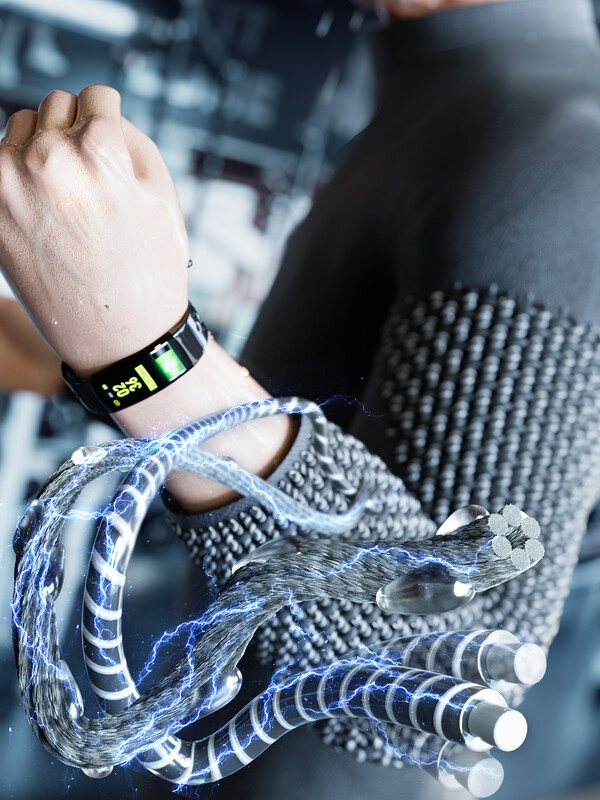A group of scientists from the Korea Institute of Science and Technology (KIST) have announced the creation of innovative smart clothing capable of transforming mechanical energy from friction or glucose found in sweat, which is produced during human activity, into usable electrical energy.

With the emergence of smart clothing blending fashion and information technology (IT), there has been a growing fascination with alternative energy sources to fuel these garments beyond traditional batteries.
Energy harvesting technology exemplified by the ability to capture energy from human movements and sweat, all without the need for a conventional charging system, stands as a prime illustration of this concept.
Nevertheless, these fibers remain susceptible to humidity, resulting in a reduction of power efficiency owing to the presence of ambient moisture or human sweat. Additionally, the utilization of sweat cells has proven challenging due to their limited capacity for power generation.
The research team, led by Professors Song Hyun-cheol and Jang Ji-soo, developed a new type of textile technology for smart clothing that generates electricity even under various humidity conditions by co-weaving triboelectric generator (TEG) and perspiration electric generator (PEG)-based fibers.
The new clothing utilizes not only the friction generated when a person is active but also moisture and sweat, which conventionally reduce the power efficiency of triboelectric fibers, as an energy source.
To enhance the electrical performance of the TEG-based fiber, the researchers fabricated a porous surface based on sugar powder
They also coated the sweat cell fibers with ionic salt and parylene-C to improve power generation performance and make the cloth waterproof.
By combining these fibers into a woven fabric, the researchers developed a functional textile for smart clothing that overcomes the limitations of triboelectric fibers that are vulnerable to moisture and sweat cell fibers.
This functional textile for smart clothing can be produced on a large area and in large quantities with a simple coating process and weaving technology, dramatically reducing the production unit cost and process time.
Also, it has a high potential for commercialization as it retains its electricity-generating properties even after repeated washing.
"The technology we developed can be used in all fields of clothing-type electronic devices and wearable devices, but it is especially expected to be applied as a power source for workers who are active in extreme environments, such as firefighters, soldiers, and mountaineers," Professor Song said. "We are also conducting further experiments to utilize it as a sensor that provides various body information by applying it to smart clothing."
The research results were published in the latest issue of Advanced Energy Materials.

